He’s back, and he says he’s a changed man. After his enforced three-year spell in political rehab, Kevin Rudd declares: ‘You’d be a mug not to learn from the past.’ I say you’d be a mug to believe that he has.
If it wasn’t for more debt, more boats and more broken promises, it would be easy to believe that the Gillard interlude never happened. If someone had been in a coma for the past four years and just woke up, he would discover that Kevin Rudd is still the Prime Minister, still harping on about WorkChoices, and still trying to introduce an ETS. Spin and confected contrition aside, age has not wearied him, even though the years have certainly condemned: Kevin ’13 is still the same old Kevin ’07.
If a week is a long time in politics, four years is an eternity. Back in July 2009, Barack Obama had only just commenced his presidency, still then full of hope and audacity, Libya’s Muammar Gaddafi had recently been elected Chairman of the African Union, and in Australia, its most popular Prime Minister, having defeated the scourge of WorkChoices, was about to save the planet with an emissions trading scheme, while at the same time trying his hand as a political visionary.
In February 2009, the Monthly carried Kevin Rudd’s 7,000-word essay ‘The Global Financial Crisis’. The piece was nothing if not ambitious, attempting to cement Rudd’s reputation as a wise mandarin-cum-political messiah. ‘From time to time in human history, there occur events of a truly seismic significance,’ the article began, ‘… the significance of these events is rarely apparent when they unfold: it becomes only clear in retrospect, when observed from the commanding heights of history.’ Rarely apparent except to Kevin Rudd that is, enjoying a clear view from the commanding heights of his record approval figures.
The once and future prime minister proceeded to note that the epochal change underway due to the global financial crisis came only 30 years after ‘the triumph of neo-liberalism — that particular brand of free-market fundamentalism, extreme capitalism and excessive greed which became the economic orthodoxy of our time’. This was, by the way, the very same brand of free-market fundamentalism, extreme capitalism and excessive greed in whose mantle Kevin Rudd had wrapped himself only a year and a half earlier, trying to out-Howard John Howard on economic credentials in the run-up to the 2007 Federal Election.
The remaining 7,000-odd words of the essay combined a historical perspective, contemporary diagnosis and political prescription for social democrats (since it was them for whom Rudd was now claiming to speak) to once again ‘save capitalism from itself’. Kevin Rudd would be the new FDR of the new Great Depression; this was an audacious attempt to position himself at the intellectual forefront of the international zeitgeist. For the rest of us sceptics, it signified a realisation that just as a conservative is said to be a liberal mugged by reality, a born-again Keynesian is simply a Labor economic conservative spooked by the ASX Index.
So what can we say about Kevin Rudd’s political manifesto with the benefit of hindsight? Ironically, the greatest crisis of international capitalism in 80 years has hardly proven to be the right’s foil. If anything, more than four years since that Monthly essay, it is Kevin Rudd’s social democracy, and not capitalism, that is in dire straits around the world.
The reason can be summarised in one word: debt. Debt lies at the heart of the global economic turmoil, now in its sixth year. Initially, the concern was mainly private sector debt, born out of the subprime mortgage debacle (surely the first case in history of Main Street bringing down Wall Street); now it is public debt that looms so large. Just as banks and financial institutions over-indulged during the boom years of cheap money and dizzying financial innovation, the bell tolls now for governments, whose gluttony was decades, not just years, in the making.
While no major advanced economy could claim a respectable ‘neo-liberal’ fiscal record (except for zero-debt Australia, until the advent of Labor in 2007), it was precisely the social democracies, with their bloated public sectors, unsustainably generous welfare states and a culture of entitlement that have managed to accumulate the highest mountains of debt. Just before the economic crisis hit in 2008, Greece’s public debt stood at the Olympian heights of 110 per cent of GDP, Italy’s at 98 per cent, with Belgium, Austria, the UK, France and the Netherlands all in the ‘50 per cent plus’ club. Only five OECD countries (and that includes Luxemburg, once unkindly described as a bank with its own airport, and Estonia) have managed to keep their government debt under 20 per cent of GDP. Whether avowedly social democratic or ostensibly conservative and Christian democratic, most European governments post-war have been beholden to Keynesian dogmas and addicted to debt.
When the reckoning of the credit crunch came, it was social democracies with their institutionalised high public debt which found it hardest to deal with the consequences, caught as they were between the rock of inflexible institutions and the hard place of implacable interest groups. Australia’s record public debt accumulated in only five short years of the Rudd/Gillard/Rudd government is a reminder of a conscious attempt by Labor to Europeanise our country by making structural debt a permanent element of the new social democratic compact. Every time Labor leaves office, Australia is deeper in debt; this time, however, it was to be a feature, not a glitch. Where is the social justice in forcing future generations to pay for the spending of the current ones?
Ageing populations and a shrinking workforce and tax base mean that social democracies are actually less able than at any time in history to give their populations the lifestyle to which they have become accustomed. The options are quite limited: continue to run up debt to finance expenditure, which as the Greek and Italian experience shows is not possible indefinitely, or bite the bullet and shrink the state. The outcome is a social democracy bankrupt or transformed into something else; either way, far from Kevin Rudd’s neo-Keynesian utopia of four years ago. We’ve all seen the future in Athens, and it doesn’t work. And yet our national debt is set to peak at $190 billion, with no indication that Rudd Redux sees it as a great challenge, moral or otherwise.
Nothing dates faster than futurology, particularly if born out of political opportunism. Four years on, Kevin Rudd’s essay can be judged a political curio rather than a groundbreaking manifesto. Far from social democracy saving capitalism from itself, it is social democracy that today needs capitalism to save it from itself. Sadly — and, for Australia, dangerously — for Kevin ‘Rip Van Winkle’ Rudd, it’s always 2009. It’s clear that the man who penned the Monthly essay has neither the policy nous nor the political judgment, much less the temperament, to be prime minister, again.
Got something to add? Join the discussion and comment below.
Get 10 issues for just $10
Subscribe to The Spectator Australia today for the next 10 magazine issues, plus full online access, for just $10.
Brett Mason is a Liberal National senator from Queensland.
You might disagree with half of it, but you’ll enjoy reading all of it. Try your first month for free, then just $2 a week for the remainder of your first year.

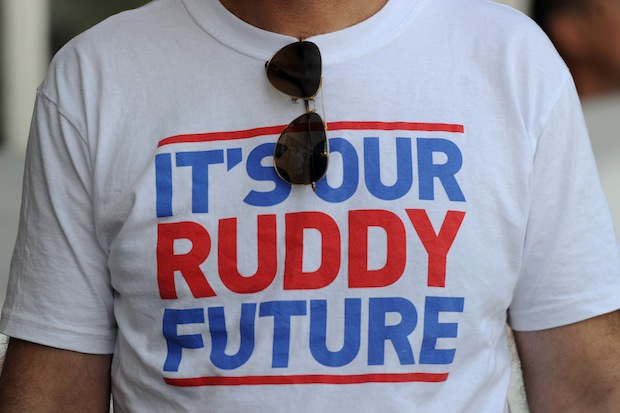
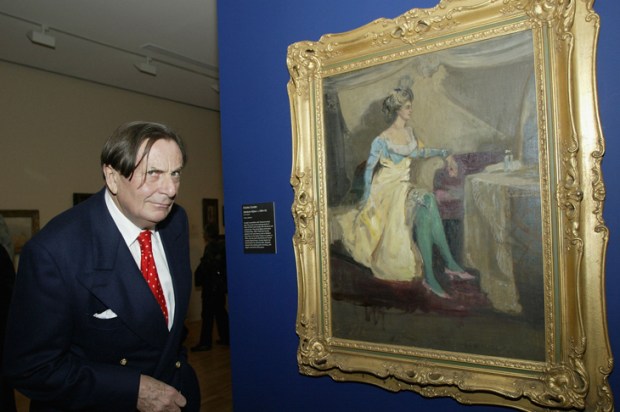


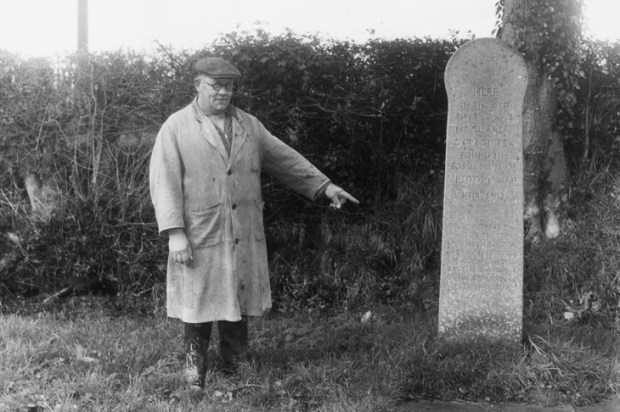
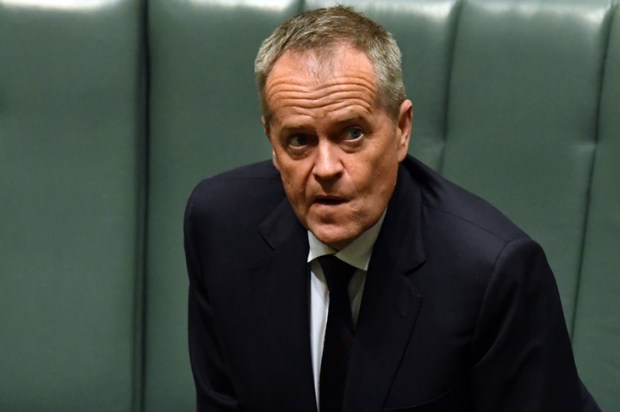
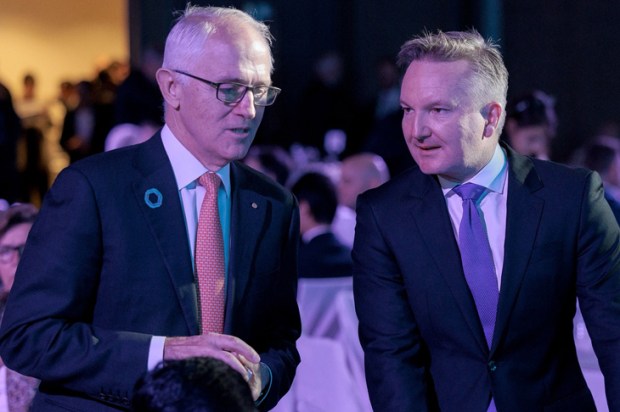






Comments
Don't miss out
Join the conversation with other Spectator Australia readers. Subscribe to leave a comment.
SUBSCRIBEAlready a subscriber? Log in